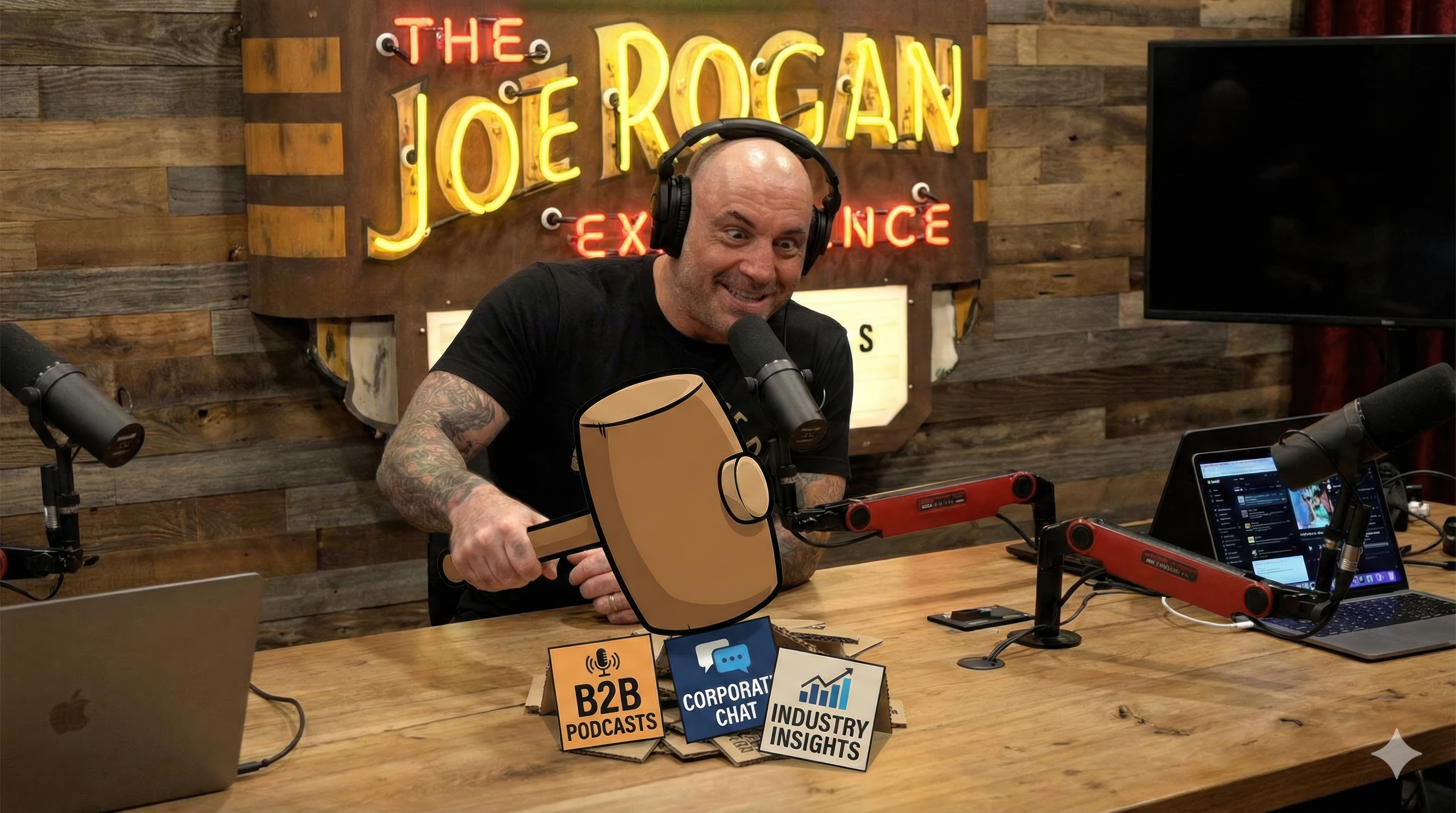If You Lead a B2B Company, Video Is Now Part of the Job
In most B2B companies, there isn't an expertise problem.
Joe Rogan Is Killing B2B Video Podcast
Mention starting a podcast in a B2B strategy meeting and watch the room tense up.
Content Is a Leadership Responsibility (Not a Marketing Favor)
Every B2B marketing team experiences the same content speed bump.
Stop Writing Case Studies. Start Building a Customer Story Library.
Let’s talk about a hidden superpower in B2B marketing.
How Marketing Can Get Leaders on Camera—Without Begging
In B2B companies, marketing is often stuck in a frustrating loop: leadership agrees that video is important, everyone no …
Case Story > Case Study: How to Turn Customer Experience into a Sales Weapon
There’s a silent epidemic in B2B marketing: the boring case study.
Stop Pitching Podcasts To Your Executive Team.
Ask a B2B marketing team if they’ve pitched a podcast to leadership. Now ask how many got a yes.








